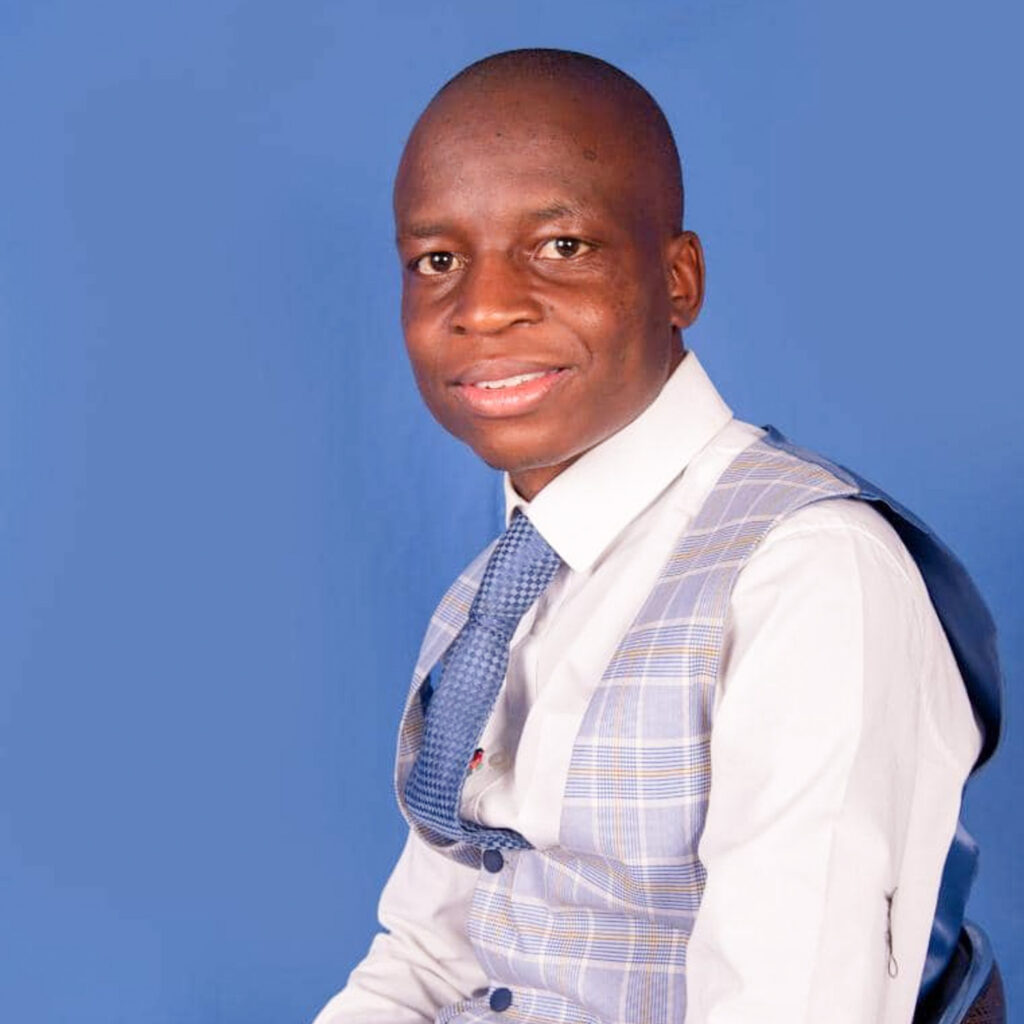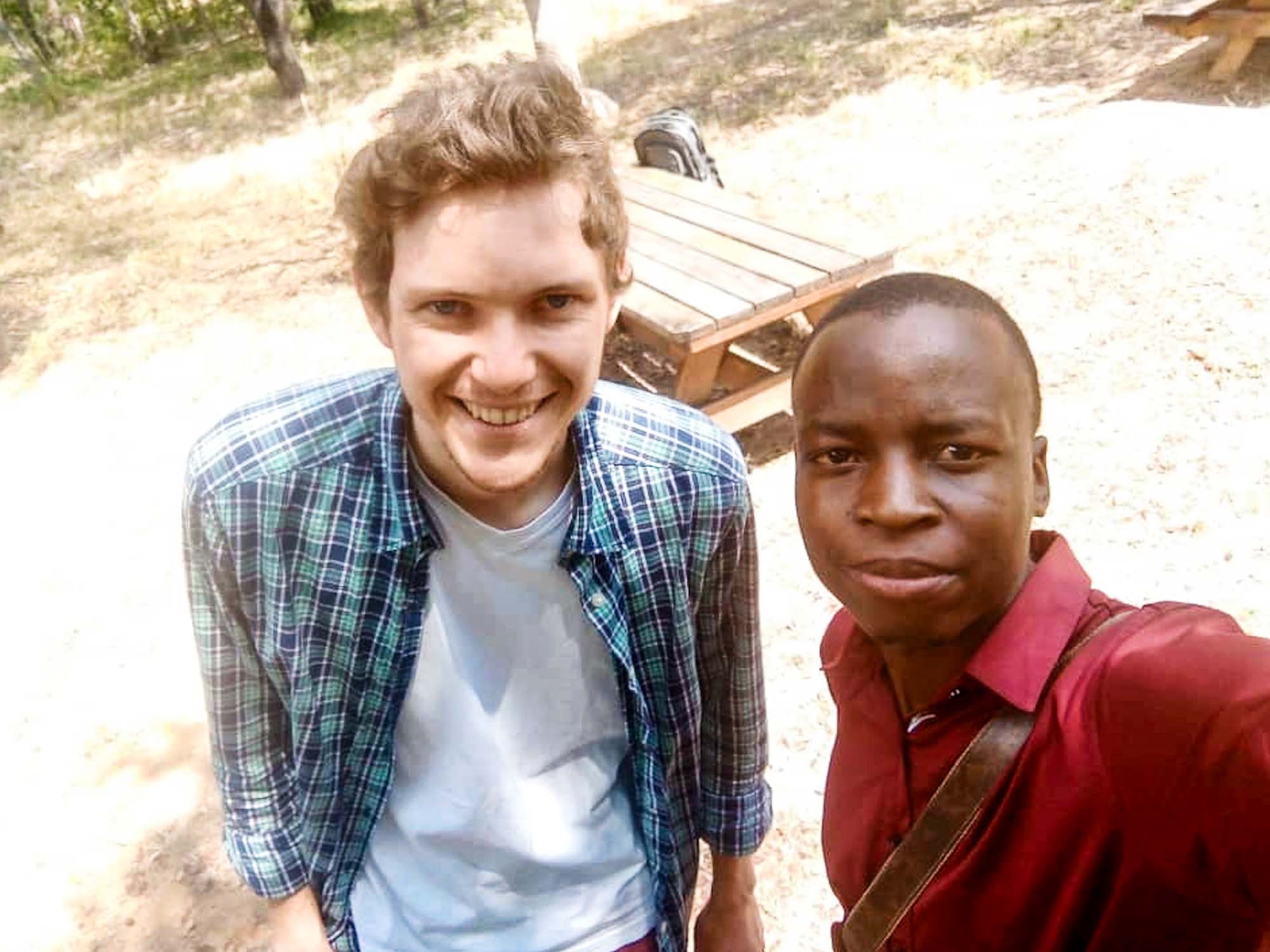A discussion with an African friend led Christopher Becker to the narratives that are at work on both sides. He tries to get to the source from which it is possible to overcome the imputations and also the entrenchments.
It’s a normal working day in the office of the fakt21 cultural community in Bochum. Philip Stoll and I are sitting at our desks and have just started working. I open Whatsapp to send a contact our address for an invoice. Since my last stay in Namibia in 2019, I’ve gotten into the habit of looking at the status1 of my contacts on Whatsapp. It is a nice and uncomplicated way for me to see something about people who are important to me but often far away, especially because the posts are mostly from friends and acquaintances from the southern African continent whom I have met during my African travels. So I check Whatsapp status messages one more time. One of them catches my attention. For my friend Tinashe wrote at 5.18am: «Ecological thinking rejects at its origin the idea of consumerism: rearmament, global debt and planned obsolescence, the three pillars of Western prosperity. If war, profligacy and money lenders/banks were abolished, the West would collapse. And while you consume in excess, the rest of the world sinks deeper and deeper into chronic disasters.»
A strong, not very nuanced, and accusatory opinion from Tinashe, I thought! But at the same time, Tinashe sheds light on two very important points for me with this thought. In Germany and in the so-called West we hear far too rarely voices from the global South who have to deal with the serious consequences of our ‹developed› standard of living every day. Tinashe is a climate activist in Zimbabwe who, among other things, works to address intergenerational colonial trauma. He seeks to create awareness of existing indigenous knowledge, plants and habits in order to strengthen the self-empowerment of Zimbabweans. Tinashe is thus committed to the regionalisation of products and independence from imports. He is a person who addresses ecology and social justice in Zimbabwe in a very constructive and holistic way.
When I spoke to Tinashe on the phone, I realised that his Whatsapp status was born out of a moment of frustration. In our conversation he also expressed his incomprehension about the current situation. The palpable need and the obvious urge of many people to change something is coupled with a feeling of great powerlessness in the face of the inertia of the system. What to do? Just keep at it, create awareness, and trust in the skills and knowledge of his peers was his attitude. It’s not easy, but «we have to keep pushing», as he said to me!

The Power of Narratives
Tinashe’s Whatsapp status and his underlying frustration showed me the power of narrative. What he describes about us, the West, is one perspective on truth. This perspective is shared by people predominantly in the global South but does not get the attention it needs to make a difference at the global level. Because it does not correspond to the hegemonic discourse – that is to say the dominant Western worldview. Who asserts and determines the narrative of normality? The West? Even though new global players have had an increasing say and influence in international affairs over the last three decades, a high concentration of resources and, above all, strategic positions are concentrated in the global North. This concentration of organisational and decision-making power as well as a multitude of international structures are the historical legacy of the European empires and colonialism that made capitalism and Western rationalism the norm. Even though the West has managed to generate a lot of wealth and luxury as a result, we must not ignore the fact that many people have had to pay a high price for them, and that traditions and indigenous wisdom have suffered.
To many in the West, it may not be clear or tangible how profound the consequences of this legacy are for the whole world, since we ourselves are, after all, in a position of power in the global relationship. The very way we receive news from Africa in Germany, and what news we get, reflects a certain narrative and a supremacy of the Western way of thinking. One can observe a focus on crises, conflicts, epidemics or, alternatively, breathtaking landscapes, plants and animals. But where is the self-empowered, inventive and modern African person to be seen? Where are the cultural treasures, wisdom and new ways of thinking that can be found in Africa and from which we could take a page out of their book?
Our Eurocentric view also shows a simplified and one-sided representation of reality. However, two fundamental differences can be identified between our Eurocentric narrative and Tinashe’s narrative. On the one hand, we can assume that Tinashe has a much more nuanced understanding of the global North due to his access to European knowledge and culture. Because even today, it is still true that in order to be really structurally capable of acting as a person living in Zimbabwe, it is impossible to avoid Western education and learning European languages – a legacy of colonialism. On the other hand, we can assume that our Western narrative has a much greater impact on the people of the African continent than the view of the West represented by Tinashe could ever have on us. Since our narrative does not yet envisage an Africa on an equal footing, it automatically elevates us to a position of power, which inevitably entails the oppression of others.
The Source of the Narration
Back in the office. Every Monday morning, Philip Stoll, Gerhard Stocker and I take an hour and a half to work together on content. For this we read ‹The Metamorphosis of the Given – Towards an Ecology of Consciousness› by Friedemann Schwarzkopf. In it, he wrote the following as long ago as 1992 (freely reproduced): «Today is a time when humanity must re-evaluate many assumptions that have determined our history and destiny over the last two thousand years. It is no longer a matter of simply ‹inventing› a new or more appropriate perspective, but of discovering the source of all these perspectives.»2
This invitation by Schwarzkopf to go to the source of perspectives and narratives is necessary if we want to find a new way of dealing with the crises of our time. No matter whether it is about the ecological crisis, social polarisation, or the power imbalance between the global North and the global South. To go in search of the causes means to allow and gain new insights into our reality and what we take for granted. In this way we connect with the world in a new way and take responsibility. This enables us to find previously unknown, holistic approaches to solutions and to develop further potential.
It involves a field of tension between inner and outer development, a fluctuating back and forth in the process, and a reciprocal dependency. How do you do that? We at fakt21 have given ourselves this beautiful and at the same time difficult task.
Translation Christian von Arnim
Title image Christopher Becker and Tinashe Elvis Chikodzi
Footnotes
- Whatsapp status is a function of the messaging service Whatsapp with which every user can share pictures, thoughts, links for 24 hours with all contacts, their so-called status.
- Friedemann Schwarzkopf, The Metamorphosis of the Given – Towards an Ecology of Consciousness. New York, Peter Lang Publishing, 1998, p. 6.






THANK YOU!